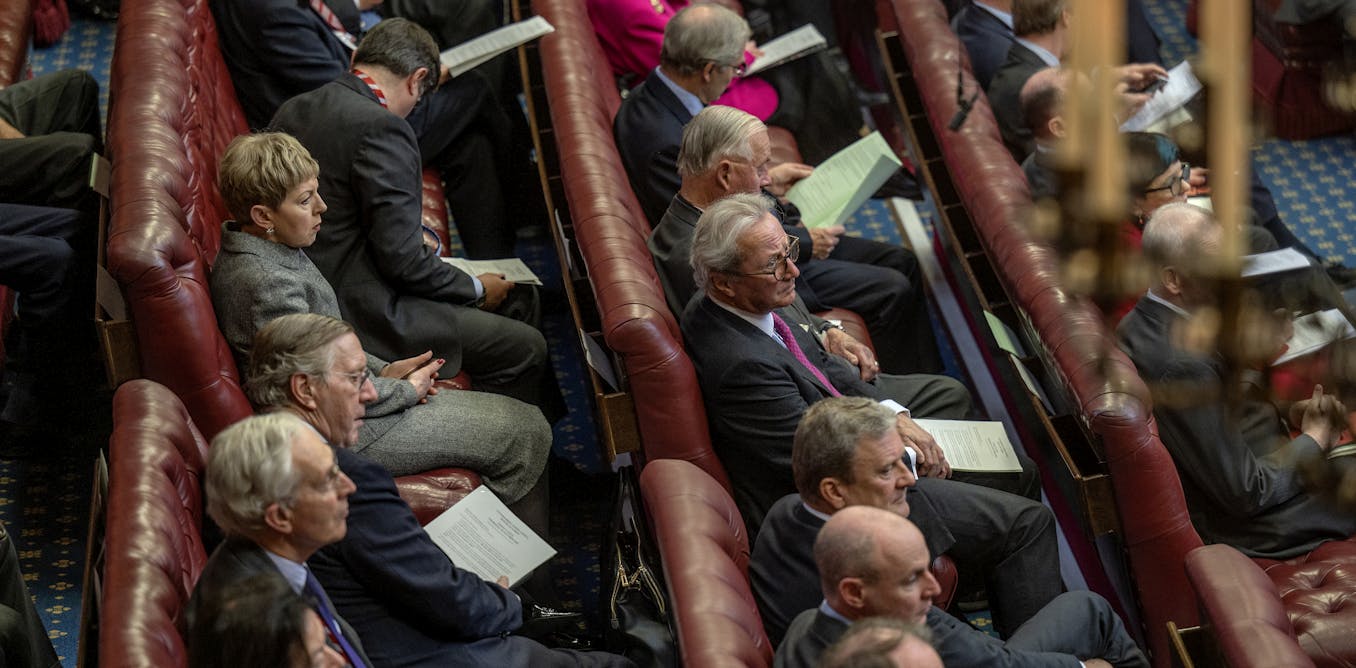Heed the Lessons of History: Middle East on the Brink of Catastrophe
In a dramatic escalation of hostilities in the Middle East, Iran launched a barrage of missiles targeting the Al Udeid Air Base in Qatar, the largest US air installation in the region. This retaliation follows the United States’ bombing of three Iranian nuclear sites on Sunday morning, an act that has heightened tensions further in an already volatile landscape.
The Incident Unfolds
The Qatari Ministry of Defence reported that its air defenses successfully intercepted the missiles aimed at the Al Udeid base, situated in the capital, Doha. Fortunately, the ministry confirmed that there were no casualties or injuries, assuring that Qatar’s airspace and territory remain secure. However, the incident underscores the precarious nature of regional security, with implications that could reverberate across the Middle East.
Marwan Bishara, Al Jazeera’s senior political analyst, warns that this latest incident risks spiraling into broader conflict, echoing historical patterns of escalation that have often resulted in catastrophic consequences for the region. With Iranian officials framing their actions as a necessary defense of their sovereignty, the stakes are higher than ever.
A Historical Context
The Middle East has been a stage for countless conflicts driven by a combination of geopolitical interests, national pride, and historical grievances. Bishara emphasizes the importance of heeding the lessons of history, pointing out that miscalculations and rash decisions have often led to prolonged confrontations. The current situation draws parallels to previous clashes, where military escalation has resulted not only in loss of life but also in long-term regional instability.
As the world watches, the individuals in power must consider the broader implications of their actions. The international community has repeatedly urged restraint, but the cycle of retaliation suggests that diplomatic avenues might be at risk of being overshadowed by militaristic responses.
The Broader Implications
This incident represents more than just a localized military engagement; it highlights the fragile alliances and enmities within the region. With various state and non-state actors involved, the potential for misinterpretation and miscalculation looms large. A direct confrontation between the US and Iran could ignite a conflict involving multiple nations, further complicating an already intricate geopolitical scenario.
As tensions flare, the pressing question remains: will decision-makers learn from history, or will they allow past mistakes to dictate the future? Bishara’s analysis serves as a critical reminder of the need for strategic patience, diplomacy, and dialogue in navigating these treacherous waters.
Conclusion
The recent missile strikes serve as a stark reminder of the precarious balance in the Middle East. As Iran and the US find themselves locked in a cycle of retaliation, the potential for catastrophic outcomes increases. In this tense climate, the lessons of history become more important than ever, beckoning leaders to seek solutions that prioritize peace over conflict. The world can only hope that wisdom prevails in the face of aggression, and that the region manages to step back from the brink of catastrophe.
Watch the video by Al Jazeera English
Video “Heed the lessons of history as Middle East on the brink of catastrophe: Marwan Bishara” was uploaded on 06/23/2025 to Youtube Channel Al Jazeera English





































How many times has Israel & US used Qatar airspace to attack Iran?
Qatar should be ashamed of themselves just like Saudi. They're as Arab as I am.
Ask those bases to leave. You are not sovereign if you have another country with a base on your land.
Marwan, man that hate West but lives in comfort in France😂 why don't you go back to muslim country Marwan?
Iran is misguided. Is and the Us are not enemies, well not the primary enemies of Iran. The primary enemies are those who have given them bases to put Muslim countries into the stone age. Libya, Iraq, and Afghanistan are examples. Pakistan is likely the next for the Arab states and their Overlords. Just saying, guessing.
US should shut down all the airbase in other countries, they aren't the rules of the world. Qatar isn't the target and that is crystal clear, the target is the US airbase, it is prevention, the same as Israel bombing Iran to prevent any nuclear facility. Qatar should support Gaza and Iran, if they don't, they are enemies.
NO ONE TRUST THE PEACE THAT TRUMP CALLED ,MEANS ATTACK AND STRIKE ,BE CAREFUL IRAN
I bet Netanyahu reads the SCALIGERIAN version of history! Everyone else should read Fomenko's chronologia to spot the repetition, the lies, falsified geography, and the creating of antiquity to back claims of impostors..
History… Divided and already concord.. some will be free forever… the rest will have to pay to live on their own land.. Example cheap oil & gas for America and israel..😂😂😂😂
They didn't say anything when the israel-nazis started the war against Iran
God bless Iran for standing up against US hegemony in the Middle East.
Iran had no choice, it's surrounded by demonic US bases
Why Qatar give their bases to America at first place? Iran has every right to defend itself. The missiles are fired only American bases not the Qatari Nation. Weldon Iran 🇮🇷✌️. Love & support from 🇵🇰.
I suppose that it was part of joined military action of Russia and China to protect Iran. The pilot from above sees only a base were flights something in direction of Iran and his task is to protect Iran,then he shots. Look,begin is subtile and measured precisely
Judgment for nephilims
War with Iran will finally bankrupt the USA, but will it kill the tax cuts?
Expect to see both good and bad policies, as well as extreme behaviors, from Trump. He is an unstable man. These are typical borderline personality disorder symptoms, BPD. The entire civilization is at risk now.
Iran is scared
What are they to learn , yiu act as if they are doing this by mistake and its nit by design , a broken middle east is what they want . Evrything is going acording to the zionest plan, this plan has been in place a very long time
Weak response from is run 😅😅😅😅😅😅😅 they are scarred and scared of DonaldBibi
Qatar has an army?
American and Israeli war machine creating all violence and terrorists around the world
Funny man. But if Israel attack Hezbollah in Lebanon, you say that it's attack on Lebanon sovereignty 😂
Keep twisting it.
Aljazeera your so supportive of US militia just like lebanon with hezbollah yet you complain of americas injust
Maybe you people should stop attacking Israel
Monday, 23 June. Trump wins again! Thank you President Trump! Low inflation, jobs returning to USA, low illegal immigration, Trump tax rates will be permanent, cut government waste, Iran has no nukes with no American boots on the ground. What a great President!
Qataris wake up to proclaim their love for Palestine, then they role over to sleep with Israel, and after they turn to embrace Iran, next they are in deep business with those who built the bombs for israel to drop on Palestine and Iran, in the afternoon they engage in a little quicky with the terrorists in the Sahara and Syria and what ever force they have left in the night they spent with concubiness in Geneva.
Its over you drama queens. Iran has been crippled. They have no choice but to give up
The thumbnail says tentions
Hey Marwan there are some vacant positions in Iran.
Tensions. Spellcheck your headlines.
A Polish terrorist plaaned it buddy 3:30
Qatar is at risk for regime change too.
I'm retired at 27, went from Grace to Grace. This video here reminds me of my transformation from a nobody to good home, honest wife and 35k biweekly and a good daughter full of love
Hahaha Qatari King Al-Thani went in His Bunker 😂😂
Maybe Qatar should rethink its alliances…. If I’m friends with a bully, then the bullies enemies might attack me also….😬
Why bother to waste your missiles when you have already informed your opponent about them coming in their direction?
Marwan said a bunch of nothing.
Sell out Marwan 😅😅
Shame on all Arab countries
There’s a mistake in the thumbnail: tensions NOT tentions 🤨
I remember IRAN Declare Long ago That if America Attacked IRAN… IRAN Will Attack Those countries Who will help OR Have American Based Ground.
Not this guy again. He’s been wrong about everything to this point. Let give you real facts. This just in. Regime change is about to take place in Iran🧐
It's spelled "tensions". NOT "tentions".
Fkn Iranians ruined my holiday , just to save face
this is not Iran but the mullahs. Apples and oranges 🧐
Trump thanks Iran for the advance warning on the "weak" missile attack😂